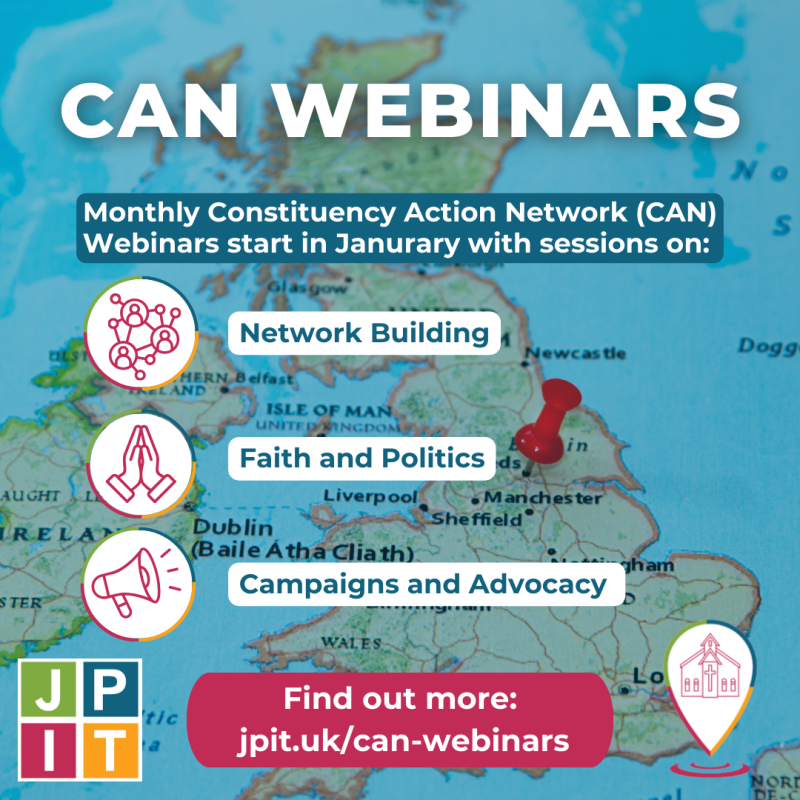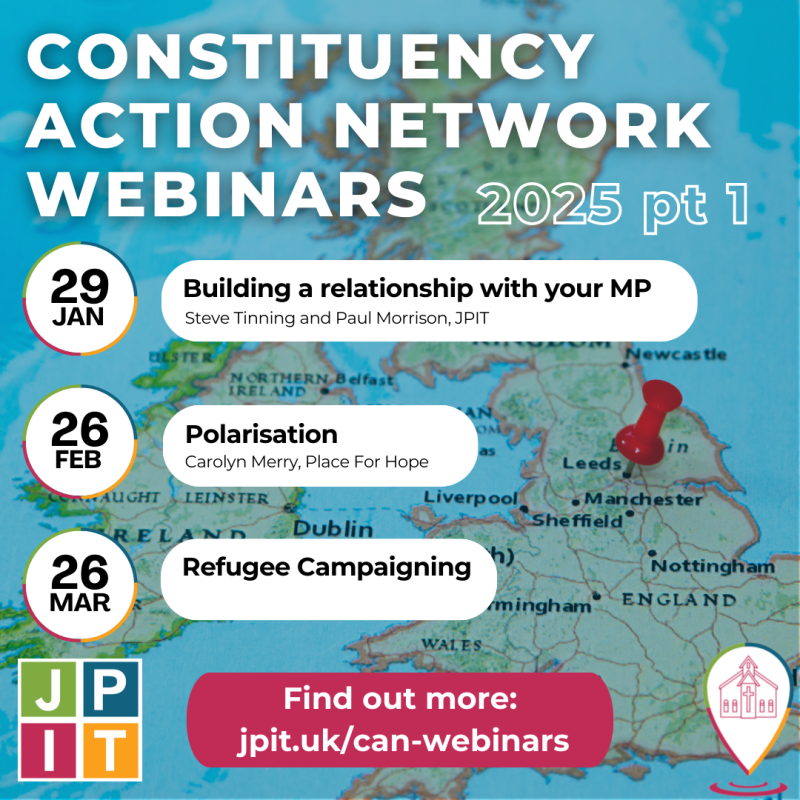In this blog, Steve Summers, Head of Community Engagement for the United Reformed Church and a member of the Joint Public Issues Team, speaks about the connection between faith and politics.
He also shares how you can build meaningful relationships with your MP and work with them to speak and act for peace and justice as part of JPIT’s Constituency Action Network, that has its first webinar of the year on 29 January which you join at either 12.30-1.30pm or 7-8pm.
Many of us find encouragement and inspiration from the Centre for Action and Contemplation (CAC) which aims to resource “transformed people working together for a more just and connected world”.

CAC emphasises that: “Instead of accusing others on the left or the right, Jesus stood in radical solidarity with the problem itself, hardly ever offering specific answers to the problem. Instead, his solidarity and compassion brought healing. In today’s religious, environmental, and political climate, our compassionate engagement is urgent and vital. When we experience the reality of our oneness with God, others, and Creation, actions of justice and healing naturally follow. If we’re working to create a more whole world, contemplation can give our actions nonviolent, loving power for the long haul.”
However, this is much easier said than done! How do we work towards “compassionate engagement” with those who have differing political views and stances to ourselves?
A couple of encounters with MPs come to mind. I was a Youth Worker when Margaret Thatcher’s government introduced the poll tax, a flat-rate tax levied on every adult without reference to their income or resources. This resulted in financial hardship for many of the young people and families I worked alongside and caused some young adults to have to move home. I eventually had my five minutes in court to explain how I thought this tax was unjust and during the process of protest was very impressed with a meeting with my MP where he listened with integrity to the experiences and the effects of this tax that I described.
More recently, after attending and advocating for a new local play area at our local planning committee, the prospective MP introduced himself and offered to lend his support, which we gladly accepted. A couple of years later, when he had become our elected MP, my teenage daughter wrote him a letter expressing her concern about the climate crisis and asking whether he would attend a school debate about the issue. She received a standard, fobbing-off response. However, due to our previous encounters, I was able to point out to him that this was not the way to encourage a young person’s political engagement, and although he still didn’t visit the school, he did have the graciousness to subsequently send a personal hand-written letter to my daughter.
Neither of these MPs received my vote and I disagreed with them on many issues. Yet I recognised and appreciated their diligence and integrity. Echoing the CAC statement above, an early conversation with Jenny Sinclair from Together for the Common Good provided clarity for me about how it is imperative to work with people from all political persuasions to affect change, despite our differences and disagreements.
The Constituency Action Network (CAN) encourages and enables your church and yourself to build a positive and supportive relationship with your MP, whatever their political party; who knows where this relationship may lead to in a few years’ time? Please have a thorough trawl through the inspirational resources and sign up for the CAN webinars!
As part of JPIT’s commitment to resource CAN churches, the team will be holding a webinar at the end of each month in 2025, with a break in July. They will provide a chance to reflect and listen, but also to learn from each other as the network grows.
Learn more about CAN webinars.


